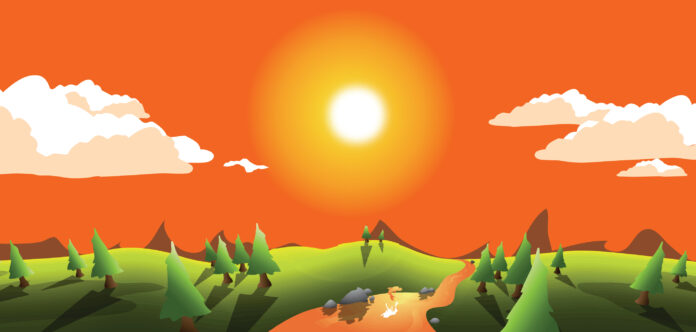As the humble ambassador of the great outdoors, in this column I am compelled to break from my usual style to call attention to two significant occasions coming up. One is the 177th birthday of great American environmentalist John Muir on April 21 and the other is Earth Day on April 22. Both are crucial to American environmental history, and here I’d like to say a few words about that history and why we as the students of UC Davis should care.
John Muir, as many of you know, was a mountaineer and naturalist whose deep love of the Sierra Nevada led him to become the grand champion of the first American environmental movement. After coming to California in the late 1860s, Muir spent decades in the Sierras exploring their mountainsides and studying their ecology. Amidst the snow-capped peaks and rushing waterfalls, he found glory and grace he couldn’t help but see as divine. Through books and journals in which he infused ecological observations with religious passion, Muir became the prophet of a new understanding of our relationship with nature. Land had until then been known only as a resource to be exploited, but the poetry and heartfelt emotion of Muir’s words inspired Americans to see it as something worthy of protection and respect. It was an awakening of our ability to care about the environment beyond our immediate self-interest; thus began environmentalism.
Over the decades that followed, this philosophy developed into two camps. Those who took a more pragmatic, sustainability-focused approach to natural resources called themselves conservationists, while those who like Muir saw the land as intrinsically valuable became known as preservationists. With the exception of things like the early national parks, both groups were largely unsuccessful as policy-makers; conservationist policies were too piecemeal to be very useful, and the idealistic preservationist goals were often too extreme to gain traction. As suburban and urban development brought environmental issues to a crisis in the ’60s, however, it was clear that the earth needed immediate help. Both sides rallied together, and the combination of conservationist practicality with preservationist vision soon began winning policy victories. In 1970 Earth Day was established to raise awareness for environmental matters, and the ensuing public concern led to the Clean Water, Clean Air and Endangered Species Acts, huge policy victories which remain keystones of environmental legislation to this day.
But what does all this history have to do with us? The answer to that begins with the little-known fact that Earth Day’s date was chosen for its suitability to college students. April 22 was deemed to be sufficiently distant from finals, midterms and holidays for educators to be able to hold teach-ins about the environment and have the largest possible impact on the student body. Implied in this prioritization is the idea that the power to effect change lies in the hearts and minds of young adults like us. I think this is right; we are the ones who the world hasn’t beaten, who still have in us the will to care.
Here in Davis today, we don’t use plastic bags, recycling bins abound and we love our bicycles. No one could accuse Davis of being a bad place to be an environmentalist. But in conversations with friends and in articles I read, I see that on the macro level, we environmentally-minded students face a crisis of confidence. While the global reality is arguably even direr than it was in the ’60s, our hope for comprehensive environmental legislation is constantly discouraged by oil-controlled politics and congressional gridlock. It’s hard to imagine major changes coming when we, the changers, are confronted with a system that threatens to deny and defeat us at every turn.
I would like to submit, however, that our chief obstacle is our pragmatism. Like the conservationists, we are preoccupied with small victories; what is likely, what is politic, what is safe. But this preoccupation comes from the fact that although we know intellectually what we’re fighting for, we don’t know it. We’ve forgotten the impetus, the root of our passion. To truly know our purpose, we have to listen as John Muir did to the sweet, wild call of the mountains. Truly caring about the environment comes from connecting with it and finding what it really means to us. Through this, we can rediscover what grounds our environmentalism and put our souls back into what we believe in.
So just as it can help restore balance to our understanding of ourselves, our connection with nature can help restore balance to our understanding of the world in which we live. When we try to help in the world, we don’t have to be enslaved to pure pragmatism; there is a living spirit that can give us hope and help us fight if we let it. From the time of John Muir to the ’60s to now, the environment has been and will always be something worth caring about; this Earth Day, I hope all of you can go outside and remember why.
Look up, look out, look around; caring is in our nature.
If you have any questions or comments, want to get more in touch with nature, or just want a down-to-earth chat (I promise I don’t always talk like this!), feel free to contact me, Nick Jensen, at njensen@ucdavis.edu.
Graphic by Sandra Bae.




